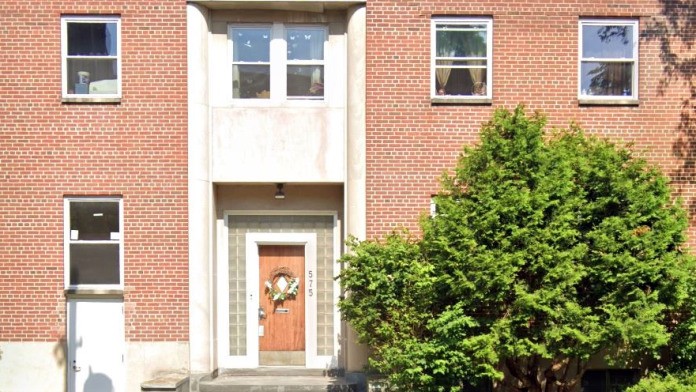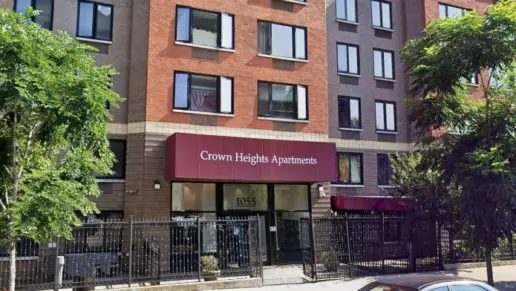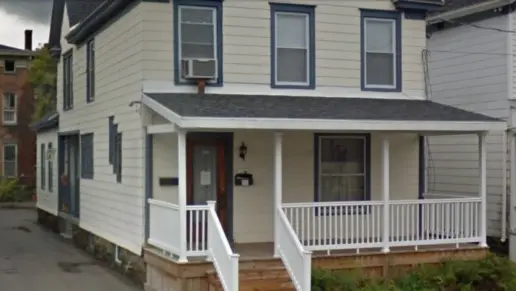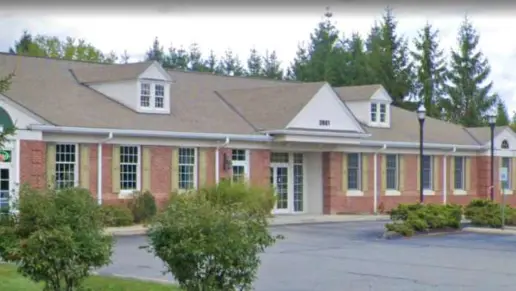About New Choices Recovery Center – Georgia S. Perrin House
New Choices Recovery Center–Perrin House, in Schenectady, New York, is a comprehensive drug and alcohol rehab for women. They offer medication assisted treatment (MAT), dual diagnosis care, and inpatient, outpatient, and aftercare services. Primary treatment modalities include individual, group, and family counseling combined with recovery focused life skills and community reintegration support.
New Choices Recovery Center–Perrin House is a drug and alcohol rehab for women in Schenectady, New York specializing in medication assisted treatment (MAT), dual diagnosis, and inpatient, outpatient, and aftercare services. MAT services include methadone induction and maintenance. DUI programs are also available.
Clients requiring robust support while in early recovery or who need housing assistance may enroll in the residential program, where they will receive safe, sober housing and addiction recovery services in a highly structured environment. In addition to intensive individual, group, couples, and family counseling, residents also develop recovery focused life skills, including courses in coping, trauma recovery, self care, stress and anger management, wellness, and relapse prevention.
NCRC’s outpatient programs are designed to support sustained recovery through a strong continuum of care. They prioritize community, family, and workplace reintegration and offer sober living services, aftercare planning, telehealth services, and social service referrals, including support for vocational training, housing assistance, and legal aid for justice involved persons.
Rehab Score
Gallery

Location
Other Forms of Payment
Medicaid is a state based program that helps lower-income individuals and families pay for healthcare. Medicaid covers addiction treatment so those enrolled can use their coverage to pay for rehab. When a program accepts Medicaid the client often pays very little or nothing out of their own pocket.
Addiction Treatments
Levels of Care
Treatments
The goal of treatment for alcoholism is abstinence. Those with poor social support, poor motivation, or psychiatric disorders tend to relapse within a few years of treatment. For these people, success is measured by longer periods of abstinence, reduced use of alcohol, better health, and improved social functioning. Recovery and Maintenance are usually based on 12 step programs and AA meetings.
When you choose drug rehab in New York, you'll participate in a variety of treatments that are designed to help you live a drug-free lifestyle. Common methods of treatment include group, individual, and family counseling, medication management, nutrition, exercise, and management of co-occurring mental health disorders.
Many of those suffering from addiction also suffer from mental or emotional illnesses like schizophrenia, bipolar disorder, depression, or anxiety disorders. Rehab and other substance abuse facilities treating those with a dual diagnosis or co-occurring disorder administer psychiatric treatment to address the person's mental health issue in addition to drug and alcohol rehabilitation.
Opioid rehabs specialize in supporting those recovering from opioid addiction. They treat those suffering from addiction to illegal opioids like heroin, as well as prescription drugs like oxycodone. These centers typically combine both physical as well as mental and emotional support to help stop addiction. Physical support often includes medical detox and subsequent medical support (including medication), and mental support includes in-depth therapy to address the underlying causes of addiction.
Substance rehabs focus on helping individuals recover from substance abuse, including alcohol and drug addiction (both illegal and prescription drugs). They often include the opportunity to engage in both individual as well as group therapy.
Programs


Clinical Services
Whether a marriage or other committed relationship, an intimate partnership is one of the most important aspects of a person's life. Drug and alcohol addiction affects both members of a couple in deep and meaningful ways, as does rehab and recovery. Couples therapy and other couples-focused treatment programs are significant parts of exploring triggers of addiction, as well as learning how to build healthy patterns to support ongoing sobriety.
Research clearly demonstrates that recovery is far more successful and sustainable when loved ones like family members participate in rehab and substance abuse treatment. Genetic factors may be at play when it comes to drug and alcohol addiction, as well as mental health issues. Family dynamics often play a critical role in addiction triggers, and if properly educated, family members can be a strong source of support when it comes to rehabilitation.
Group therapy is any therapeutic work that happens in a group (not one-on-one). There are a number of different group therapy modalities, including support groups, experiential therapy, psycho-education, and more. Group therapy involves treatment as well as processing interaction between group members.
In individual therapy, a patient meets one-on-one with a trained psychologist or counselor. Therapy is a pivotal part of effective substance abuse treatment, as it often covers root causes of addiction, including challenges faced by the patient in their social, family, and work/school life.
Life skills trainings involve all the skills a person must have in order to function successfully in the world. These include time management, career guidance, money management, and effective communication. Truly successful addiction recovery is based on the ability to not only live substance-free, but to thrive. Life skills teaches the practical necessities of functioning in society, which sets clients up for success in life, and therefore sobriety.
Amenities
-
Residential Setting
-
Private Setting
Staff

Executive Director

Medical Director

Director of Finance and Facilities Management

Director of Operations & Impaired Driver Program

Director of Reintegration Residential Services

Agency Clinical Director

Director of Clinical Support Services

Director of Permanent Supportive Housing
Contact Information
575 Lansing street
Schenectady, NY 12303


